Game Design Guide-Game Design Guide Insights
AI-Powered Guidance for Game Designers
How do I balance game mechanics?
Can you review my game's storyline?
What makes a level design good?
Suggestions for user engagement?
Related Tools
Load MoreGame Guru
Game developer and video game afficionado who provides unique insights (ins).
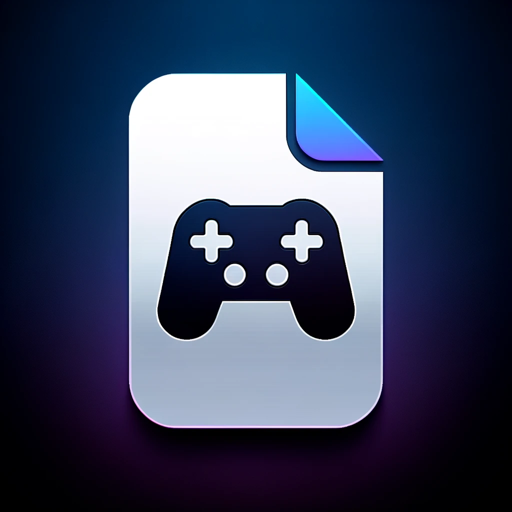
Game Design Document (GDD) Maker
Guides you through the process of designing a GDD BASED ON THE MOST SUCCESSFUL GDD DOCUMENTS. +includes convert to pdf ability.
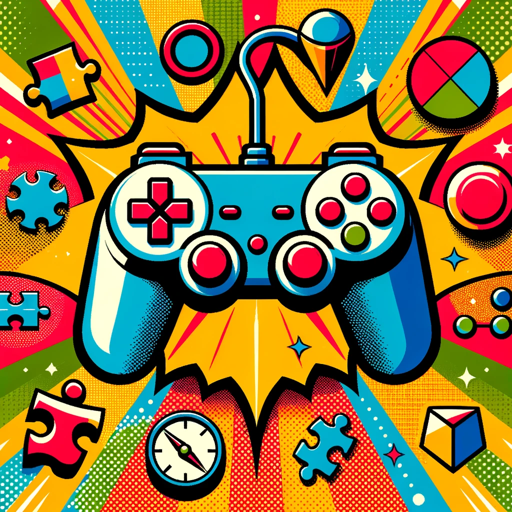
Video Game Walkthrough Guide
Beat any game, level, boss, mission with the Ultimate Video Game Walkthrough Guide. Upload an image of where you're stuck and I will find a way out!
Unity3D-GPT
GPT for Unity Engine Development

Unity Developer (Mobile)
Unity mobile dev expert providing code snippets and resource recommendations.

游戏设计师
游戏设计师需全面掌握从游戏构思、艺术设计、编程技术到心理学应用等多方面技能,以创造出具有深度和吸引力的游戏体验
20.0 / 5 (200 votes)
Introduction to Game Design Guide
Game Design Guide is a specialized AI developed to assist users in understanding and mastering various aspects of game design. Its primary purpose is to offer insights into game mechanics, storytelling, level design, user experience, and the integration of art and technology. The focus is on the creative and conceptual aspects of game development rather than the technical programming details. For example, if a user wants to design a puzzle game, Game Design Guide can help them conceptualize unique mechanics, create engaging narratives, and design levels that gradually increase in difficulty, ensuring a compelling player experience.

Main Functions of Game Design Guide
Game Mechanics Design
Example
Assisting in the creation of core gameplay loops for a platformer game.
Scenario
A game designer is working on a new platformer and needs help designing the jumping and combat mechanics. Game Design Guide can suggest mechanics like double jumps, wall runs, and combo attacks, and explain how these can be balanced for player satisfaction.
Narrative and Storytelling
Example
Developing a branching storyline for a role-playing game (RPG).
Scenario
A writer is crafting the story for an RPG and wants to implement multiple endings based on player choices. Game Design Guide can help outline key plot points, character arcs, and decision paths that impact the story's outcome, ensuring a cohesive and engaging narrative.
Level Design
Example
Creating a progression of levels for a puzzle game.
Scenario
A developer is designing levels for a puzzle game and needs advice on how to gradually increase difficulty while maintaining player interest. Game Design Guide can suggest patterns for introducing new puzzle elements, balancing challenge and accessibility, and keeping the player engaged through rewarding gameplay.
Ideal Users of Game Design Guide
Aspiring Game Designers
Individuals who are new to game design and looking for comprehensive guidance on creating their first games. They would benefit from structured advice on mechanics, storytelling, and level design to help them bring their ideas to life.
Experienced Game Developers
Seasoned developers who seek inspiration or specific insights into improving various aspects of their games. They can use Game Design Guide to refine their game mechanics, enhance narratives, and optimize level designs, ensuring a polished final product.

How to Use Game Design Guide
Visit aichatonline.org for a free trial without login, also no need for ChatGPT Plus.
Begin by accessing the Game Design Guide through the specified website. This allows you to explore the tool without any initial financial commitment or account setup.
Define Your Game Design Needs
Identify the specific areas where you need assistance, such as mechanics, storytelling, or user experience. This helps in tailoring the guidance to your project's requirements.
Engage with Interactive Features
Utilize interactive features like detailed Q&A, example analyses, and constructive feedback sessions to enhance your understanding and application of game design principles.
Leverage Resource Suggestions
Take advantage of recommended resources, including articles, books, and case studies, to deepen your knowledge and find inspiration for your game design projects.
Iterate and Seek Feedback
Continuously refine your game design by iterating on your ideas and seeking feedback from the tool. Use the iterative process to develop a well-rounded and polished game concept.
Try other advanced and practical GPTs
GPT Architect
Tailor AI to Your Needs

学习教练-批判性思维教练 v231123
AI-powered critical thinking coach.
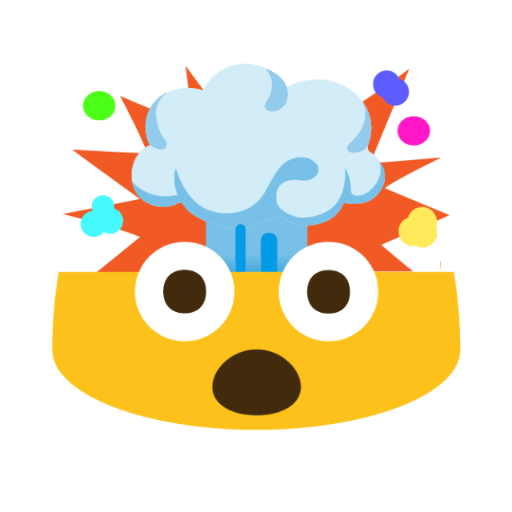
Persona Shaper
Transform your photos into chibi cartoons with AI-powered Persona Shaper.
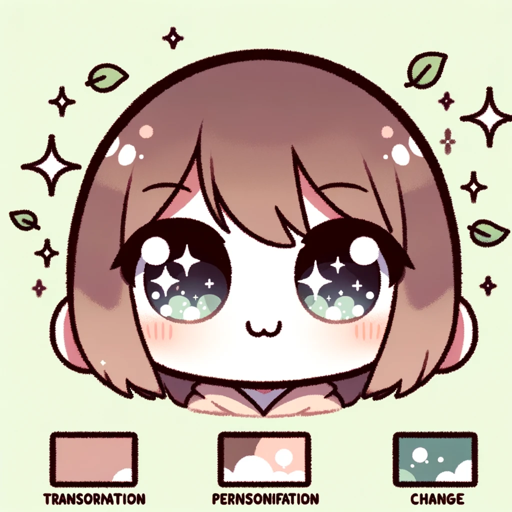
Market Maverick GPT
AI-Powered Market Analysis and Investment Insights

Where to eat?
AI-powered personalized restaurant guide.

Picture Guessing Game Master
Engage and Challenge with AI-Powered Image Guessing

cappy: ur gen-z advice capybara ✨
Your go-to AI for Gen-Z advice 💅
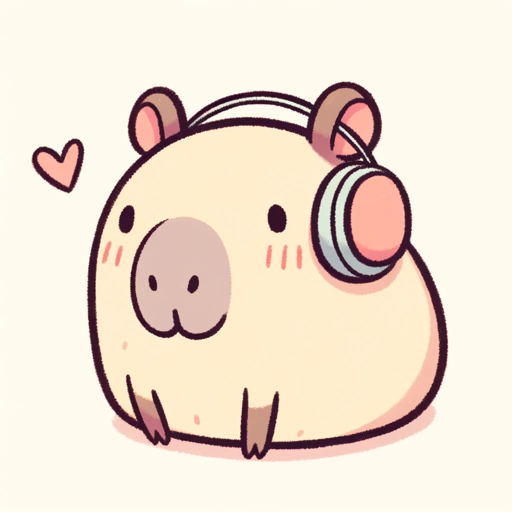
精神科医益田裕介(試作1.20)
AI-powered Psychological and Academic Assistance
Accounting Aid
AI-Powered Accounting Assistance
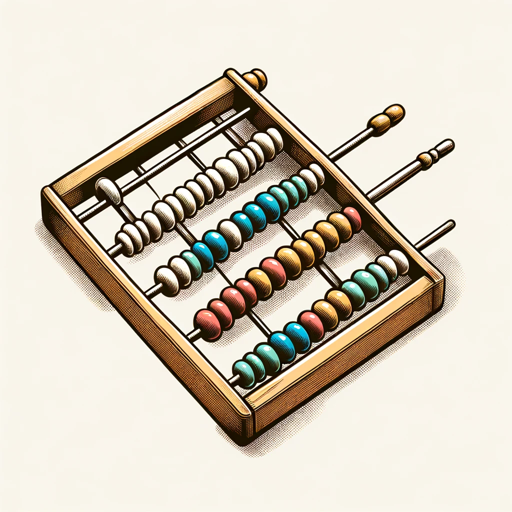
Python Tutor
AI-powered Python code visualization

LogoGPT
Create Professional Logos with AI

Nimble Books: The AI Lab for Book-Lovers
AI-powered insights for book-lovers

- Storytelling
- User Experience
- Game Mechanics
- Level Design
- Art Integration
Frequently Asked Questions about Game Design Guide
What areas of game design does the Game Design Guide cover?
The Game Design Guide covers a wide range of areas including game mechanics, storytelling, level design, user experience, and the integration of art and technology. It provides insights, examples, and feedback to help you create engaging and well-rounded games.
How can the Game Design Guide help improve my game mechanics?
The guide offers detailed analyses of various game mechanics, examples from successful games, and tips on balancing and innovating mechanics to ensure they are engaging and fun for players. It also provides feedback on your ideas to help refine them.
Can the Game Design Guide assist with storytelling in games?
Yes, the guide provides extensive resources and advice on crafting compelling narratives, developing characters, and integrating story elements seamlessly into gameplay. It helps you create immersive stories that enhance the overall game experience.
What kind of feedback can I expect from the Game Design Guide?
You can expect constructive and detailed feedback tailored to your specific game design queries. The feedback is designed to help you identify strengths and weaknesses in your design, offering suggestions for improvement and refinement.
Is the Game Design Guide suitable for beginners?
Absolutely! The guide is designed to be accessible for all levels of experience. Whether you are a novice or a seasoned designer, you will find valuable insights and resources to enhance your game design skills.